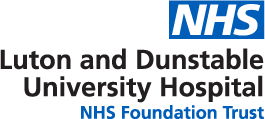By continuing to use the site, you agree to the use of cookies. You can find out more by following this link - Close
Preparation
You will be given a provisional date for the operation by the breast surgeon at your outpatient appointment. We will give you confirmation of this date as well as an appointment for your pre-operation health check, which will take place with a nurse a few days before your operation.
The health check includes some or all of the following checks: your medical history, blood pressure, blood test, a chest x-ray, and an ECG (a heart tracing). Some checks may be done earlier. Please do not hesitate to ask the nurse any questions you may have about the procedure; the nurse may also discuss the consent issues with you and ask you to sign the consent form.
Please tell the nurse if you have diabetes, or any allergies. Please bring in any medicines you are currently taking and tell the nurse if you are taking warfarin or any other blood thinning medication.If you do not attend this pre-operation check-up the operation cannot go ahead.
On the day of your operation
You must not eat anything from 6 hours before your operation. You may drink clear fluids only up until 2 hours beforehand.
Unless told otherwise please go to the main reception of the hospital and report to the waiting list office. You will then be directed to the correct area. Staff will check your details.
Personal effects: you should bring in pyjamas if possible, and a soft bra or crop top.
You will be admitted on the day of your operation.
Remember to bring with you any medicines you take on a regular basis; and your next-of-kin’s phone number.
Your surgeon will see you to confirm that you understand the operation and agree to go ahead with it; the area to be operated on will be marked with a special skin pen.
The anaesthetist will also see you to discuss your anaesthetic. You will be given a gown to change into and an identity band – please check it.
Please ask any questions that you may have.
The operation
You will have a general anaesthetic and be asleep throughout the procedure.
You will have wounds on your breast and/or your armpit depending on the type of surgery you have.
You may leave the operating theatre with:
After your operation
You will first go to a recovery area and then return to the ward. You can have something to eat and drink as soon as you feel like it. If you have a drain it will remain in place for up to a week after the operation. The tube drains into a bag or bottle, which can be carried around in a small bag. You will be able to go home with the drain and nurses will come from the hospital to check it for you.
Please take painkillers as soon as you are able as the local anaesthetic will wear off and it is important to have some pain relief in your system before this happens.
You will be encouraged to get up and walk as soon as possible.
There will be a light dressing over the wound site.
Most people will be able to go home on the day of surgery, but this depends on the operation you are having and your home circumstances as you need to have someone at home with you for 24 hours after a general anaesthetic.
At home
If your dressing is waterproof you may shower with your back to the water flow and dab dry. Whatever type of dressing you have you can have a shallow bath, but do not soak the wound in water.
For added support and comfort, we recommend you wear a bra day and night for at least 7 days. It is best to avoid underwired bras at first.
Take the painkillers prescribed regularly. Your GP can prescribe more if you require them.
When you come to the outpatient clinic your dressings and paper stitches will be removed and, if needed any stitches are on the outside they will be trimmed or removed.
To start with the wound will be red and slightly swollen with some bruising; this may last for a couple of weeks. You may also notice lumpiness at the site of surgery and this is normal. After a few months your scar will start to fade into a thin pale line and the lumpiness will begin to settle.
You may feel tired for the first couple of weeks or so, it is helpful to have some help with household jobs. Gradually increase your activities, but use your commonsense and do not overdo it.
You can resume driving when the wound is completely healed and you have a good range of arm movements and can do an emergency stop.
You may return to work when you feel ready to do so and/or depending upon any further treatment that may be required.
Most people having breast surgery will require 3-4 weeks off work.
An appointment will be sent for you to attend the outpatient clinic 1-2 weeks after your surgery to discuss the results of your operation and any further treatments that may be necessary.
Risks and complications
Breast surgery is usually very safe and the most serious complications are very rare.
These need to be weighed against the risks of not having the surgery when making your decision. There are some risks associated with most procedures. For breast surgery they may include the following:
Bleeding – this can occur early or late after the surgery but is generally drained away without problem by the ‘drains’ that are in place. Rarely, a collection of blood may need to be removed under anaesthetic.
Infection – this can be controlled by the use of antibiotics; occasionally intravenous (directly into the bloodstream) antibiotics may be needed; and more rarely surgery might be necessary.
Bruising –some bruising around the site of the wound is quite common, this will settle down in a few weeks.
Deep Venous Thrombosis (DVT) – reduce the risk of this by being as mobile as possible at home.
Fluid collection – this is very common after breast surgery, you may develop fluid collections which may need to be removed by needle aspiration.
Pain/discomfort – in the area of the operation should improve with time, but some pain/discomfort in this area may persist.
Please speak to your breast surgeon before your operation if you have any concerns about these risks.

